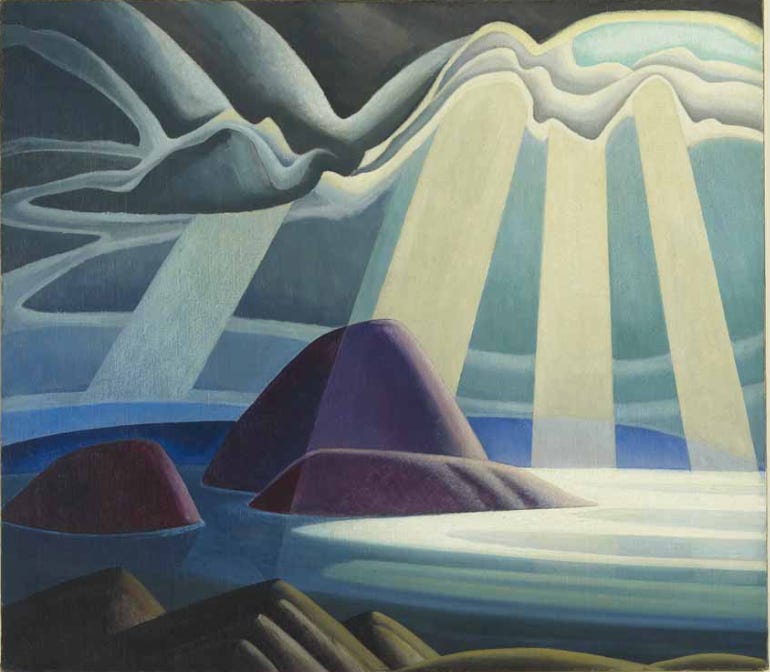Winston attended college against his parents’ wishes, where he studied the history of the twenty-first century, also against their wishes. They wanted him to go into the arts. A woodwind. The bassoon. History was a useless major, they said. But everything was useless now, Winston figured, so what did it matter?
His thesis traced an argument that pervaded the era’s popular science books. The human brain had evolved in an entirely different environment and was ill-suited to the digital age (so went the argument). “When you encounter rage on a screen,” one book said, “you become flooded with anxiety, because your brain thinks a warring tribe is coming for you.” “Any inkling of a threat is exaggerated,” said another. “A million years ago, on the savanna, such vigilance kept our forebears alive.”
Winston browsed these books at two a.m., under a pool of moonlight in his local park. By dawn, the geese would be too raucous, so people gathered after hours. The silence stymied Winston’s concentration, however. He took a taxi downtown, where the chatter became white noise.
A man in the town square walked up to him, tweezing a small coffee cup between his fingers, saucer rattling. “You and I could be friends,” he told Winston. “I’ve been watching you read. I myself have been reading. An odiously long book. Odious! A character is obsessed with the phrase a concatenation of circumstances. Imagine that.”
Three in the morning now. Toddlers slumped against a play structure. The elderly lay on benches. Swatches of conversation rebounded off of buildings in the square, as food carts drummed the cobblestones.
“I’m starving, let’s have threesies,” said the man. This dead-of-night snack tended toward bland fare. Winston ordered dry toast, and the man had congee. “Who I am at night isn’t who I am during the day,” he said. “I’m a night owl, but I’m married, I’ve got kids, but I don’t want to see them now, I want to be a spy, cloak and dagger, that’s what I want, but it’s odious, it’s foolish.”
They walked around the city center. On one corner, a woman was playing Prokofiev, while catty-corner, another street musician invaded the airspace with Aaron Copland. Winston recognized the piece from his studies. It had once adorned a TV commercial. Beef, it’s what’s for dinner! “Beautiful.” The man had bleary eyes, like he’d just stepped off an airplane. “I can’t go home,” he said, “I can’t be anywhere I normally am, the whole game’s upside-down, I don’t live in this province, I’m exhausted.”
They kept walking, approaching the lake, where a new species of mayfly had woken up. “You’ve hardly spoken, Winston. Tell me about yourself.”
“I’m twenty-four years old,” Winston said at length. He had an idea of what the man wanted to hear. “I’ve never slept. I’ve hardly lived. My days feel aimless.” They steered toward Princess Street, where all the shops had OPEN 24 HOURS pasted on their windows. “Then again,” Winston added, “I realize that’s a story we tell ourselves, our contemporary drama, and it will fade to nothing in twenty years’ time. Your children will feel at home in this always-on savanna.” The man doffed an imaginary hat, smiled at the stars, and said, “That must make me the fool.” “We’re all the fool,” Winston said. “Shall we get breakfast? The sun’s starting to rise.”





